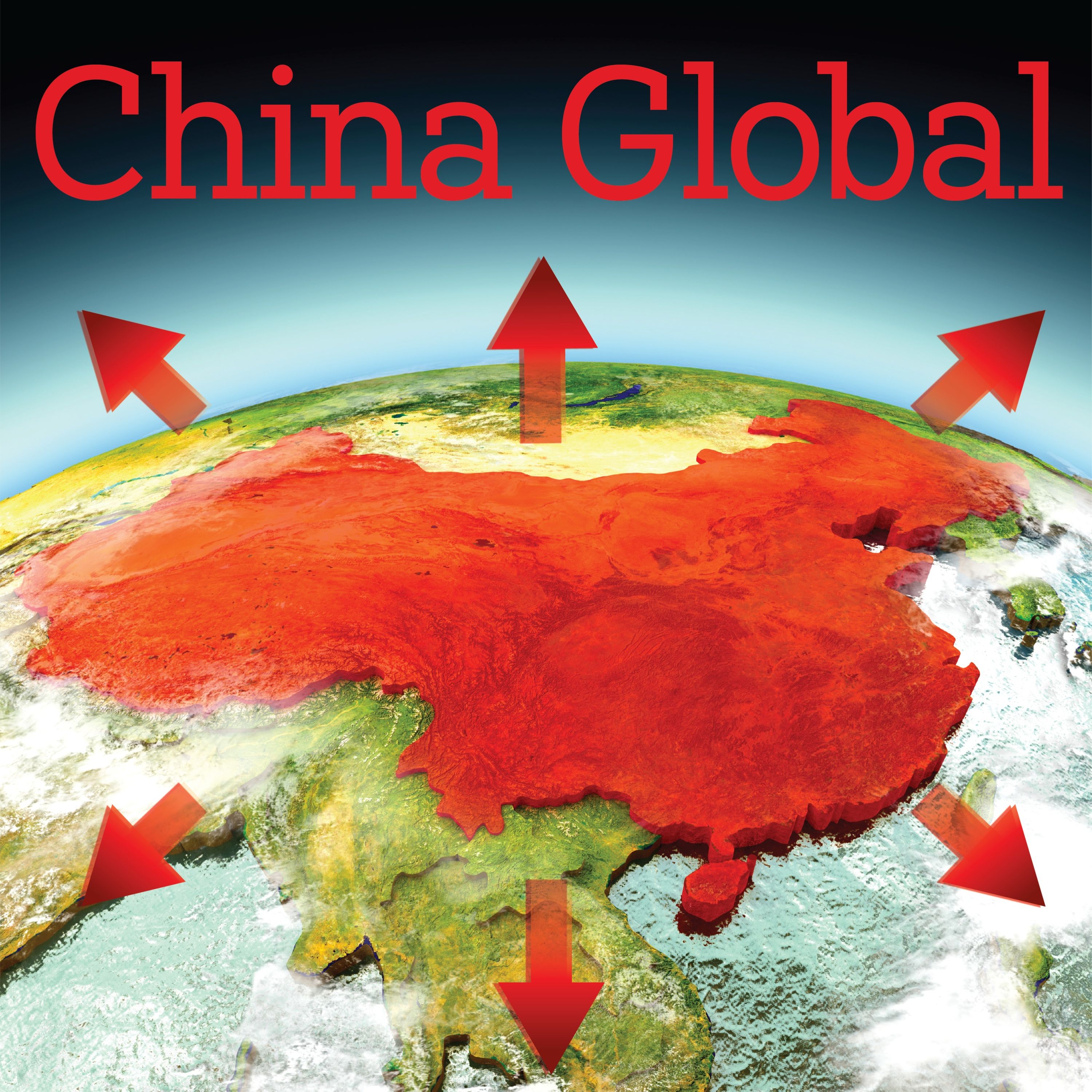

China Global
The German Marshall Fund
China’s rise has captivated and vexed the international community. From defense, technology, and the environment, to trade, academia, and human rights, much of what Beijing does now reverberates across the map. China Global is a new podcast from the German Marshall Fund that decodes Beijing’s global ambitions as they unfold. Every other week, host Bonnie Glaser will be joined by a different international expert for an illuminating discussion on a different aspect of China’s foreign policy, the worldview that drives its actions, the tactics it’s using to achieve its goals—and what that means for the rest of the world.
Episodes
Mentioned books

Jun 20, 2023 • 25min
China's Unprofessional Intercept in the Taiwan Strait
On June 3, 2023, there was a near-collision between a US and a PRC destroyer in the Taiwan Strait. According to a statement issued by US Indo-Pacific Command, a US Navy destroyer, the USS Chung-Hoon, and a Canadian warship were conducting a routine south to north Taiwan Strait transit through waters where high seas freedoms of navigation and overflight apply. The Luyang III, a People’s Liberation Army destroyer, overtook the Chung-Hoon on her port side and crossed her bow at 150 yards. The US warship maintained course and slowed to 10 knots to avoid a collision. US Indo-Pacific Command stated that the actions of the Chinese destroyer violated the maritime Rules of the Road of safe passage in international waters.How dangerous was this incident? Why do US warships sail in these waters, and do they do so in accordance with international law? And what steps should be taken to ensure that accidents do not take place between US and Chinese naval vessels?To discuss these questions, host Bonnie Glaser is joined by Dr. Peter Dutton, professor of international law in the Stockton Center for International Law at the US Naval War College and an Adjunct Professor of Law at New York University School of Law. His research focuses on international law of the sea, Chinese views of sovereignty and international law, and China’s maritime expansion. Timestamps[01:50] Freedom of the High Seas [03:21] Joint Freedom of Navigation Operations[03:52] Statement by the US Indo-Pacific Command[04:46] Statement by Defense Minister Li Shangfu[06:49] History of Dangerous Maneuvering by the Chinese[07:41] Trigger for the Recent Dangerous Maneuver[09:13] Chinese Adherence to International Law[10:19] Signaling Intentions in a Safe and Legal Manner[12:03] Aftermath of a Hypothetical Collision at Sea[14:44] Is the US Goading China into Conflict?[17:38] Rules of Behavior for Safety of Air and Maritime Encounters[19:24] Code for Unplanned Encounters at Sea[20:27] The US and the Convention on the Law of the Sea[21:51] Interactions with Chinese Experts and Professionals

Jun 6, 2023 • 27min
Evolving Switzerland-China Relations
[01:50] Switzerland’s Policy toward China Today[03:48] Changes in Swiss-Chinese Relations[06:03] Switzerland’s 2021 China Strategy[08:17] Areas of Economic Cooperation[11:05] Switzerland’s Relationship with Taiwan[14:45] Switzerland’s One China Policy[17:32] Contending with Human Rights Issues[18:55] Huawei’s Presence in Switzerland[20:56] China’s Influence in Switzerland[23:42] Forecast of Swiss-Chinese Relations

May 23, 2023 • 29min
China's Rise in the Global Digital Space
Timestamps[01:30] Sinocentric Order in the Digital Sphere[06:51] China’s Digital Silk Road [09:35] Global Rise of Chinese Digital Platforms[11:57] The Strength of Chinese Digital Platforms[14:04] The Digital Sector and Government Partnership[16:53] Dominance of Western Digital Platforms[19:08] Pros and Cons of Banning TikTok [21:08] Chinese Crackdown of the Digital Sector[23:27] Looking Forward in the Digital Space

May 9, 2023 • 27min
China's Role in Developing Country Debt Restructuring
Timestamps[02:01] China and International Bailout Activities[04:33] China and the G20 Common Framework[07:34] Debt Service Suspension Initiative[09:42] Definition of a “Haircut” in Finance[10:00] IMF and World Bank Spring Meetings[12:37] Beijing’s Demands for Write-Downs[16:18] Japan, India, and France Establishing a Creditors Committee[18:43] Chinese Participation in the Paris Club[22:08] Role of Geopolitical Competition in Debt Relief

Apr 25, 2023 • 32min
China’s Industrial Policy and Semiconductors
Timestamps[02:14] China’s Implementation of Industrial Policy[05:20] Industrial Policy to Achieve Foreign Policy Objectives[08:02] Influence of Strategic Competition on Industrial Policy[10:42] Efficacy of Chinese Industrial Policies[14:17] Semiconductor Subsidies and Export Controls[19:06] Chinese Countermeasures to Export Controls[22:39] Assessment of U.S. Policy[25:58] Forecast of Competition on Advanced Technologies[29:50] Balance of Centralization and Adaptation

Apr 11, 2023 • 26min
Decoding the Vocabulary of Chinese Foreign Policy
Time Stamps[01:39] Background of The Decoding China Dictionary[04:30] Democracy with Chinese Characteristics[06:34] Differing Interpretations of International Law[08:32] Freedom of Religion Versus Freedom of Religious Belief[10:28] Foreign Aid and China as a Developing Country[12:01] Security in Chinese Parlance[13:55] Transparency and its Uses in China[16:19] Historic Revisionism and Domestic Policy[18:39] Historic Revisionism and Foreign Policy[19:44] Promotion of Chinese Interpretations Internationally[23:52] Importance of Understanding Chinese Terminology

Mar 28, 2023 • 28min
China's Role in the US Fentanyl Crisis
[02:10] Chinese Government Awareness of Illicit Domestic Narcotics[05:30] China’s Scheduling of Fentanyl in 2019[06:40] Difference Between Scheduling and Banning[09:50] Lack of Cooperation Between China and Mexico [14:18] Chinese Counternarcotics Cooperation in Southeast Asia[19:04] Possible Steps for China[22:56] A Looming Fentanyl Crisis in China?[25:43] Multilateral Approach to Counternarcotics

Mar 14, 2023 • 37min
China and Australia
[02:16] The 14 Grievances[05:56] Canberra's New Rhetoric[07:54] Self-Censorship[11:12] Decision Making Tightrope[13:00] Darwin Port Lease[14:00] Foreign Investment Review Board[18:00] AUKUS Announcement in Washington[20:13] Australia and the Quad[23:19] Within the Albanese Government[27:05] Australia on Taiwan[31:21] America's China Policy

Feb 28, 2023 • 29min
US-China Competition in Africa
[02:28] China’s Objectives & Success in Africa[06:02] China’s Political Model & Engaging Political Elites[12:27] China-Africa Support at the UN[14:47] Declining Chinese Investments[16:04] Public Opinion and US-Chinese Competition[22:19] Debt Strains on Relations[25:45] Chinese Propaganda in Africa

Feb 14, 2023 • 32min
Chinese Surveillance Balloon
[00:00] Topic and Guest Introduction[02:31] Information Collection Capabilities[07:25] Chinese Motivations[10:40] Reaction to Shot Down Balloon[13:59] Mil-Mil Dialogue[16:59] Leverage Over China[19:15] Guidance from Past Incidents[22:08] Risk Reduction Measures[24:47] Balloon Incident and Xi Jinping[27:32] Wartime Use of Balloons


